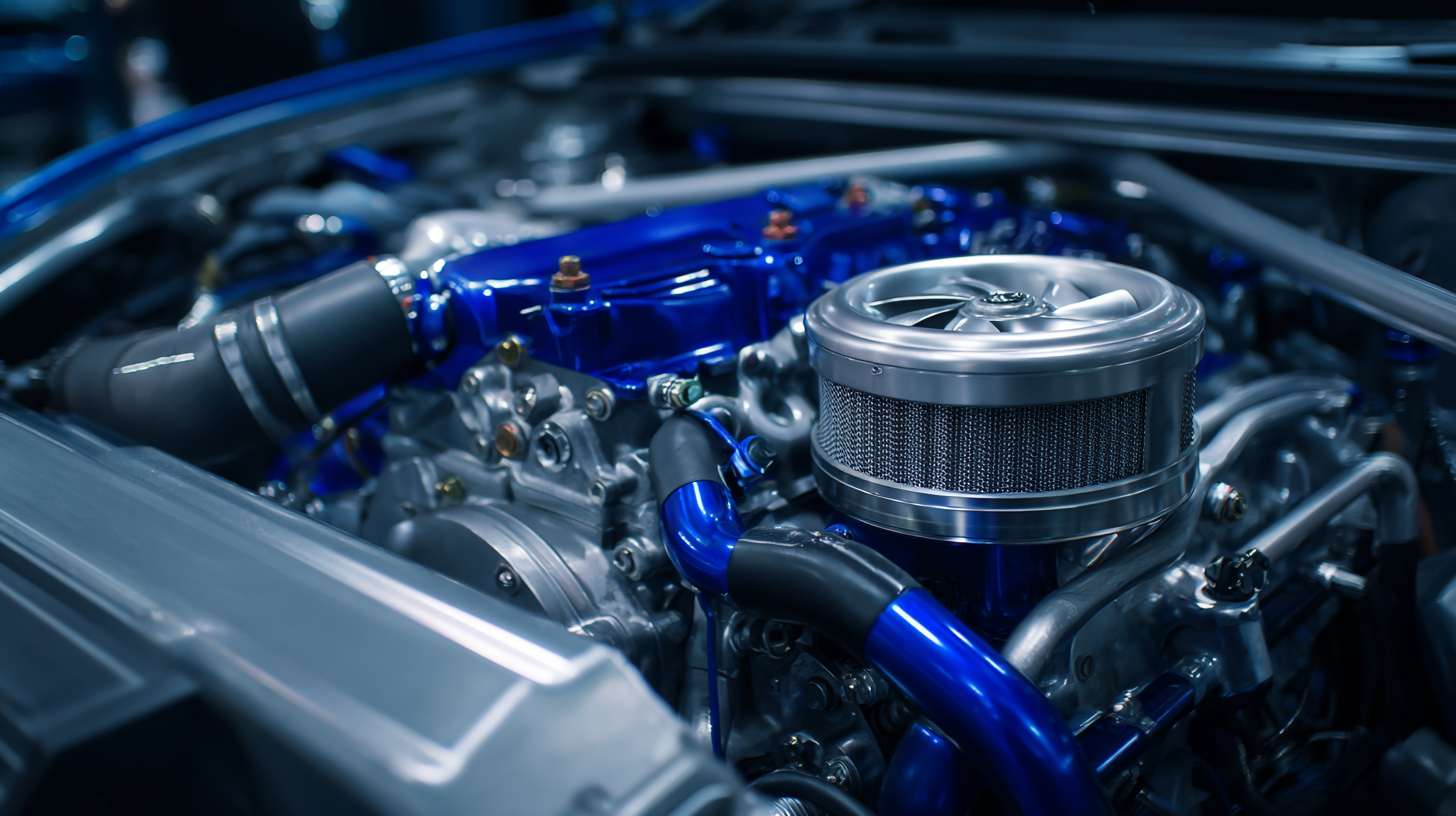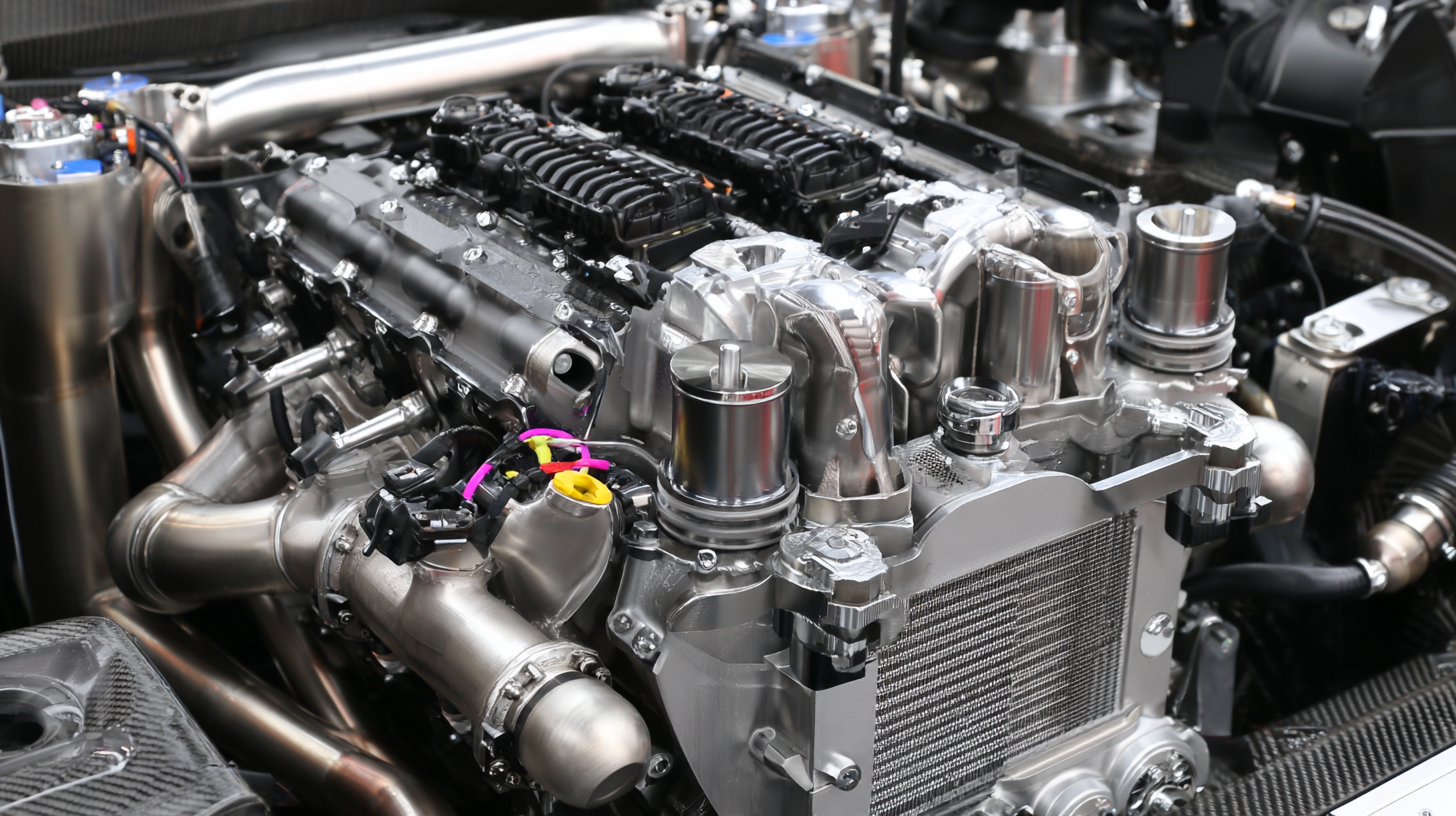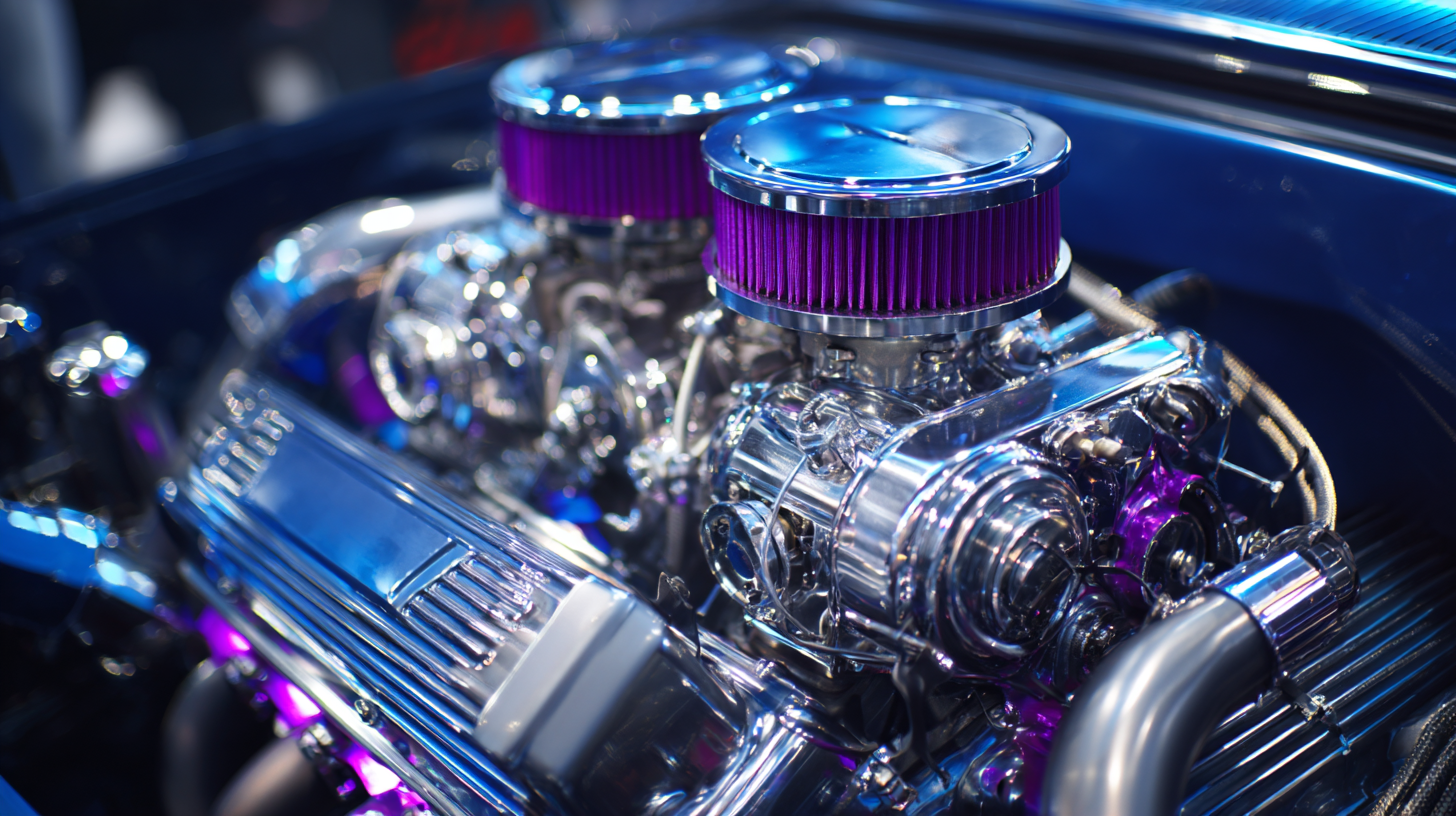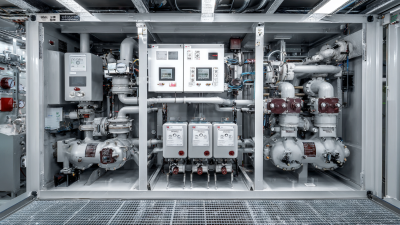Engines Cooler play a pivotal role in enhancing the overall performance and longevity of an engine, a crucial component in various vehicles and machinery. Understanding how these innovative devices work and their impact on engine efficiency is essential for enthusiasts and professionals alike. An Engines Cooler is designed to regulate the temperature of the engine, preventing overheating, which can lead to detrimental effects on performance and reliability. By maintaining optimal operating temperatures, these coolers allow for improved fuel efficiency, increased power output, and reduced wear and tear on engine components. In this article, we will explore the different types of Engines Coolers, how they function, and the significant advantages they offer in enhancing engine performance. Whether you're a mechanic, a car enthusiast, or simply looking to boost your vehicle's efficiency, understanding the role of Engines Coolers is vital in achieving your objectives.

Engines cooler, specifically designed to regulate engine temperature, play a crucial role in enhancing vehicle performance. By maintaining optimal operating temperatures, engine coolers ensure that the engine runs efficiently, reducing the risk of overheating. This is particularly important in high-performance scenarios, where excess heat can lead to mechanical failures and decreased power output. Engine coolers operate by circulating coolant through the engine and dissipating heat produced during combustion, thereby stabilizing the engine environment.
Understanding the functions of engine coolers is essential for anyone interested in automotive engineering or performance tuning. These cooling systems not only support engines in performing at their best but also contribute to fuel efficiency by preventing unnecessary energy loss. Advanced designs, such as integrated liquid cooling systems, further enhance cooling efficiency, showcasing the continual evolution in engine cooler technology. As engines become more powerful and compact, the importance of effective cooling solutions cannot be overstated, making engine coolers indispensable in modern automotive engineering.
 Engine coolers play a pivotal role in maintaining optimal operating temperatures for various types of engines, ultimately enhancing overall performance. The most common types of engine coolers include air-cooled and liquid-cooled systems. Air-cooled engines utilize the ambient air to dissipate heat, making them simpler and lighter, while liquid-cooled engines circulate coolant through the engine block and radiators, providing more consistent temperature control. According to an industry report by Frost & Sullivan, liquid cooling systems can improve thermal efficiency by up to 25%, underscoring their critical role in performance optimization.
Engine coolers play a pivotal role in maintaining optimal operating temperatures for various types of engines, ultimately enhancing overall performance. The most common types of engine coolers include air-cooled and liquid-cooled systems. Air-cooled engines utilize the ambient air to dissipate heat, making them simpler and lighter, while liquid-cooled engines circulate coolant through the engine block and radiators, providing more consistent temperature control. According to an industry report by Frost & Sullivan, liquid cooling systems can improve thermal efficiency by up to 25%, underscoring their critical role in performance optimization.
In exploring different designs and materials for engine coolers, aluminum is frequently favored for its lightweight and excellent thermal conductivity properties. Moreover, recent innovations have introduced composite materials that offer improved heat resistance and durability, further enhancing the performance and longevity of engine coolers. Additionally, brands are increasingly adopting advanced manufacturing techniques, such as 3D printing, which allows for more complex designs that can significantly enhance airflow and cooling efficiency.
Tip: Regular maintenance of engine cooling systems is crucial. Check coolant levels regularly and flush the system as recommended to prevent overheating. Also, consider upgrading to high-performance coolers if you’re frequently pushing your engine to its limits.
Engine coolers play a crucial role in regulating the temperature of an engine, thereby enhancing its overall performance. The science behind this lies in their ability to dissipate excessive heat generated during combustion. When an engine operates, friction and fuel combustion create heat, which, if not managed, can lead to overheating. Engine coolers integrate with the cooling system, often utilizing coolant to absorb and transfer heat away from critical engine components. This process not only prevents engine damage but also ensures optimal efficiency and longevity.
Tips: Regular maintenance of your engine cooler can significantly improve cooling efficiency. Check for any leaks or blockages in the cooling system to ensure consistent performance. Additionally, using high-quality coolant can enhance heat transfer, offering better temperature regulation for your engine.
Another key aspect is understanding the type of engine cooler suited for your vehicle. Air-cooled systems are advantageous for lower temperature conditions, while liquid-cooled systems are more effective in maintaining optimal temperatures in high-performance engines. Assess your driving conditions and engine specifications to determine the best cooler configuration for your needs.
Engine coolers play a crucial role in maintaining optimal engine temperatures, which is essential for both performance and longevity. By dissipating excess heat generated during combustion and operation, these cooling systems prevent overheating, ensuring that the engine maintains an efficient operating temperature. This not only enhances performance but also aids in fuel efficiency, allowing vehicles to run more smoothly and effectively.
The benefits of engine coolers extend beyond just immediate performance enhancements. By managing heat levels, they significantly reduce wear and tear on engine components, which can lead to a longer lifespan for the engine. Additionally, maintaining a stable temperature helps in preserving the integrity of engine fluids, such as oil and coolant, which further protects against breakdowns and reduces maintenance costs. Ultimately, investing in a quality engine cooler can result in improved overall vehicle reliability and a more enjoyable driving experience.

When it comes to optimizing vehicle performance, the installation and maintenance of engine coolers are crucial factors. Properly selecting and fitting an engine cooler can significantly reduce operating temperatures, thereby preventing overheating and enhancing efficiency. To ensure optimal performance, it is important to choose a cooler that matches your vehicle's specifications and intended use, whether for daily driving, racing, or heavy-duty applications. Professional installation is recommended to guarantee that all connections are secure and that the cooler is mounted correctly for maximum airflow.
Regular maintenance of your engine cooler is equally important. This includes checking for leaks or blockages in the cooling lines, inspecting the cooler for signs of corrosion, and ensuring that the coolant is at the right levels and in good condition. Flushing the cooling system periodically helps remove buildup and debris that can reduce the cooler’s efficiency. Additionally, monitoring engine temperature during operation can alert you to potential issues before they escalate, helping to maintain optimal performance and longevity of the engine cooling system.






